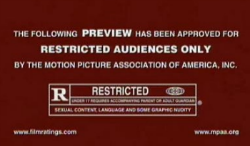TorrentFreak Email Update |
- Now the RIAA Sues Megaupload “For Massive Copyright Theft”
- Kim Dotcom Goes Head to Head With The MPAA’s Top Lawyer
- Record Labels Lose Big as Court Declares File-Sharing Tools Legal
| Now the RIAA Sues Megaupload “For Massive Copyright Theft” Posted: 11 Apr 2014 12:24 AM PDT
In a complaint filed at a Virginia District Court, the studios described Megaupload as a business designed and operated with copyright infringement in mind. Over the course of its life the site generated millions of dollars at the expense of the movie industry, the studios say, and for this Dotcom and partners Mathias Ortmann and Bram Van Der Kolk must be held accountable. But fighting Hollywood is not the only thing that Dotcom has to worry about. In a fresh complaint filed yesterday in Virginia, Warner Music, UMG Recordings, Sony Music and Capitol Records teamed up against Megaupload, Vestor Limited, Kim Dotcom, Mathias Ortmann and Bram Van Der Kolk in pursuit of yet more millions in damages. The RIAA’s 30-page complaint appears to be substantially the same as that filed by the movie studios, with claims that Dotcom and his associates “actively and intentionally” encouraged users to upload infringing copies of popular content in order to distribute those copies to millions of people without a license. The complaint, which lists 87 specific copyright works from artists including Justin Bieber, Lady Gaga, Rihanna, Katy Perry, Beyonce, Coldplay and David Guetta, treads familiar ground when it comes to the rewards program Megaupload was said to operate. “Indeed, for several years, through what it called an ‘Uploader Rewards’ program, Defendants even paid their users to upload popular content that Defendants knew infringed copyrights, until Defendants finally discontinued this program a few months before their indictment,” the RIAA writes. Unsurprisingly the RIAA heavily references the US Government’s action against Megaupload, noting that in 2011 the site was designated a “notorious market” by the USTR. Of course, just a month later Megaupload was shut down and by the end of January 2012 its operators were being indicted on charges including criminal copyright infringement. In common with their movie industry counterparts, the RIAA demands a trial by jury on allegations of direct copyright infringement, inducement of copyright infringement, vicarious and contributory infringement against all defendants. Millions of dollars are at stake but Kim Dotcom’s U.S. attorney Ira Rothken believes that the lawsuit will not succeed. “The RIAA, MPAA, and DOJ are like three blind mice following each other in the pursuit of meritless copyright claims and [an] assault on copyright neutral cloud technology,” Rothken said. “Megaupload strongly believes it’s going to prevail.” Source: TorrentFreak, for the latest info on copyright, file-sharing and anonymous VPN services. |
| Kim Dotcom Goes Head to Head With The MPAA’s Top Lawyer Posted: 10 Apr 2014 01:53 PM PDT
In their complaint the movie studios repeat many of the claims that were laid out in the criminal case while demanding millions of dollars in damages. But according to Dotcom the lawsuit is just a desperate attempt at an asset-grab by the MPAA because the criminal case against Megaupload is going to fail. “The criminal case is failing. There will be no extradition. They are now trying to get at our seized assets with civil forfeitures. It’s a move of desperation,” Dotcom tells TF. MPAA General Counsel Steven Fabrizio disagrees, and has told his side of the story to many news outlets this week. Dotcom and Fabrizio are usually not heard at the same time, but in a rare interview with Radio New Zealand the two bumped heads. Fabrizio was seemingly under the impression that he was doing a solo interview, but that changed when the reporter informed him that Dotcom was listening in on a second line. When she asked the MPAA lawyer whether he wanted to discuss the case with Dotcom there was a brief silence, but he eventually agreed. First MPAA’s General Counsel had the opportunity to explain what Megaupload did wrong and why. In line with their complaint, Fabrizio described the file-storage site as a business that was set up to facilitate and encourage copyright infringement. “Megaupload was never a cloud storage service to begin with,” Fabrizio noted. “From its birth to its death, it was a service that was designed to profit from copyright infringement, and in fact, it did profit handsomely from copyright infringement.” “The proof of the pudding that it was not a storage service, is that almost 98 percent of the people who used Megaupload were not premium users. If you weren’t a premium user, and your content wasn’t downloaded frequently enough, then Megaupload would delete it,” he added. Dotcom, who in private refers to the MPAA’s counsel as “Fabricatio,” because he is “script writing and ‘fabricating’ Hollywood’s science fiction lawsuits”, later refuted the claim that Megaupload deleted files uploaded by free users. “That is a blatant lie,” Dotcom said. “We have not purged any files from Megaupload for many years. If you were a non-premium user and you had an account with us that was free, your files would not be deleted.” Fabrizio’s second argument was that Megaupload offered a rewards program which encouraged people to share large video files. Again, Dotcom contested this claim by pointing out that people only got paid for files smaller than 100 megabytes. Megaupload’s founder conceded that users could circumvent the limits by uploading split archives, but he stressed that the restriction was specifically put in place to discourage copyright infringement. The third allegation Fabrizio made was that Megaupload employees had private conversations where they allegedly discussed the “pirate” status of their work. “Internally they referred to themselves as modern pirates. Some of the employees and some of the co-defendants actually uploaded infringing popular movies themselves, so that they could be downloaded by others,” the MPAA’s top lawyer noted. Again, Dotcom disagreed and explained that the “pirates” the employee referred to were Steve Jobs and Bill Gates. “Yeah, well that’s complete nonsense, right. One of our employees who was admin staff and a developer has chatted with our CTO and he watched a documentary called Pirates of Silicon Valley. That was a movie about Steve Jobs and Bill Gates and how they stole the ideas from each other,” Dotcom said. “He then made this remark to [the CTO] saying we are modern-day pirates, comparing himself to the attitude those guys had, simply because they were copying from each other and we were copying from our competitors and vice versa,” he added. Responding to the reporter’s question on why he wouldn’t go to the U.S. voluntarily to stand trial, Dotcom said that he offered to do so, but only on the condition that he would get access to his funds as well as bail, which the Department of Justice refused. The reporter then switched back to Fabrizio, who didn’t seem to believe much of what Dotcom was saying. “Mr. Dotcom can talk all he wants about his excuses, but the reality is that you can say anything you want if you’re not constrained by the truth of the facts that you’re saying,” Fabrizio said. Of course, the same also applies to the MPAA and Mr. Fabrizio… The interview is an intriguing face-off, and the first time ever that the MPAA and Dotcom have gone head-to-head. It probably wont be the last time either, although the venue will very much depend on how the criminal proceedings and the civil case progress. Source: TorrentFreak, for the latest info on copyright, file-sharing and anonymous VPN services. This posting includes an audio/video/photo media file: Download Now |
| Record Labels Lose Big as Court Declares File-Sharing Tools Legal Posted: 10 Apr 2014 06:40 AM PDT
The record companies said that Soto had designed his Blubster, Piolet and Manolito software with the intent of providing a platform for users to pirate music while he generated profit. This, the labels said, amounted to unfair competition in the market. Soto should pay them 13 million euros ($18m) in damages, the labels argued. Following years of litigation, in 2011 a Madrid court handed defeat to the labels by declaring Soto’s technology neutral. While his users may have infringed copyright, Soto was not responsible for that, the court said. Furthermore, since Soto wasn’t in the record business and the labels weren’t in the file-sharing business, the unfair competition claim was also dismissed. After investing so much time in the case, the labels weren’t prepared to concede defeat. The case went to the Madrid Court of Appeals which has just made its decision public. It’s a decisive win for Soto and a big loss for the labels. “[Soto's] activity is not only neutral, and perfectly legal, moreover it is protected by article 38 of our Constitution,” the Court wrote in its ruling. Speaking with TorrentFreak, Soto says that the Court saw no problem with sharing technology and discovered no plan “to sink or unbalance the recording industry” or obstruct the development of its business. “The court affirmed — yet again — that [the creation of sharing technologies] is not an act of looting, unfair competition or unfair benefit from others’ effort,” Soto informs TF. The Spaniard, who has been developing software since he was 16 years old, adds that the win is not only good news for him, but also for others seeking to innovate. “This clears the path for more opportunities to bring leading edge technologies to the marketplace and no longer be distracted by misguided legal tactics from the copyright conglomerates. We really appreciate and thank our loyal following, especially among the readers at TorrentFreak.” Soto’s lawyer, David Bravo, who described the ruling as having a “very strong foundation”, said developers will now be able to go about their business free from “inventive legal interpretations that define the very creator of a file-sharing tool as the responsible of copyright infringement.” In celebration of the victory, Soto has released a brand new version of his Blubster software, for the first time powered by BitTorrent. "While we have continued innovating with Torrents.fm, we can now also focus once again on further creating and offering advanced P2P technology across our other networks with this new version of Blubster just launched today,” Soto told TF. Traditionally Windows only, Blubster will soon debut on both Linux and Mac. Source: TorrentFreak, for the latest info on copyright, file-sharing and anonymous VPN services. |
| You are subscribed to email updates from TorrentFreak To stop receiving these emails, you may unsubscribe now. | Email delivery powered by Google |
| Google Inc., 20 West Kinzie, Chicago IL USA 60610 | |

 Earlier this week the MPAA
Earlier this week the MPAA  In 2008, Universal, Sony, EMI, Warner and "Spanish RIAA" Promusicae (Productores de Música de España) joined forces to sue MP2P Technologies, a company created by Pablo Soto, the brains behind Blubster, the "Spanish Napster" file-sharing software.
In 2008, Universal, Sony, EMI, Warner and "Spanish RIAA" Promusicae (Productores de Música de España) joined forces to sue MP2P Technologies, a company created by Pablo Soto, the brains behind Blubster, the "Spanish Napster" file-sharing software.